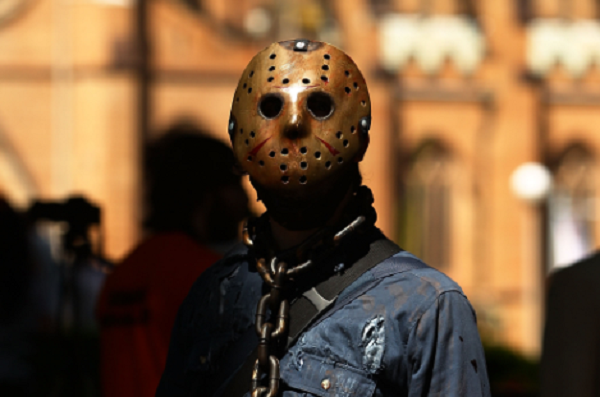
It's not so often that Friday the 13th shows up on the calendar in October, but when it does, even the least superstitious people may find themselves a bit nervous.
The date is always considered unlucky, but there seems to be an added bit of superstitious hysteria that unravels when Friday the 13th pops up in the already-spooky month of October—so much so there's even a medical term for it—paraskevidekatriaphobia, or a morbid fear of Friday the 13th.
Their dread may be warranted, though. After all, it was Friday the 13th in October when the historic "Black Friday" stock market crash occurred. It was also Friday, October 13 when Uruguayan Air Force Flight 571 plunged from the sky, killing 12 people. And it was an October Friday the 13th when Jason Voorhees murdered campers at Camp Crystal Lake—albeit a fictional murder story, the terror Voorhees wreaked helped foster a wider fear of the date.
Happy #FridayThe13th 🔪☠ï¸ðŸŽƒ pic.twitter.com/jUgPhdOtT1
— C 🧘ðŸ»â€â™€ï¸ (@Esoteric_Kitten) October 13, 2017
However, reasons why and how Friday the 13th got its unlucky association remain a mystery. But some do believe the superstitions and fear surrounding the date stem from religious beliefs and Christianity specifically.
It was the 13th guest at the Last Supper, Judas, who betrayed Jesus Christ, which led to Christ's crucifixion, held on a Friday. Some biblical scholars also believe it was a Friday when Eve convinced Adam to eat the forbidden fruit, and it was Friday the 13th when Abel committed the first murder, killing his brother Cain.
"Because Friday was the day of the crucifixion, Fridays were always regarded as a day of penance and abstinence," Steve Roud, author of The Penguin Guide to the Superstitions of Britain and Ireland, told BBC news Friday. "This religious belief spilled over into a general dislike of starting anything or doing anything important on a Friday."
Dubbed hangman's day, many public executions also occurred on Fridays during the Middle Ages. And criminals would have to walk 13 steps up the gallows before meeting their fate.
Numerologists, however, believe the superstition surrounding the date may be because the number 13 arrives in a numerical sequence after the "complete" number 12.
Thomas Fernsler, an associate policy scientist in the Mathematics and Science Education Resource Center at the University of Delaware, told National Geographic that the number 13's unluckiness most likely "has to do with [13] just being a little beyond completeness."
Uncommon Knowledge
Newsweek is committed to challenging conventional wisdom and finding connections in the search for common ground.
Newsweek is committed to challenging conventional wisdom and finding connections in the search for common ground.
About the writer
Michigan native, Janice Williams is a graduate of Oakland University where she studied journalism and communication. Upon relocating to New ... Read more
To read how Newsweek uses AI as a newsroom tool, Click here.








